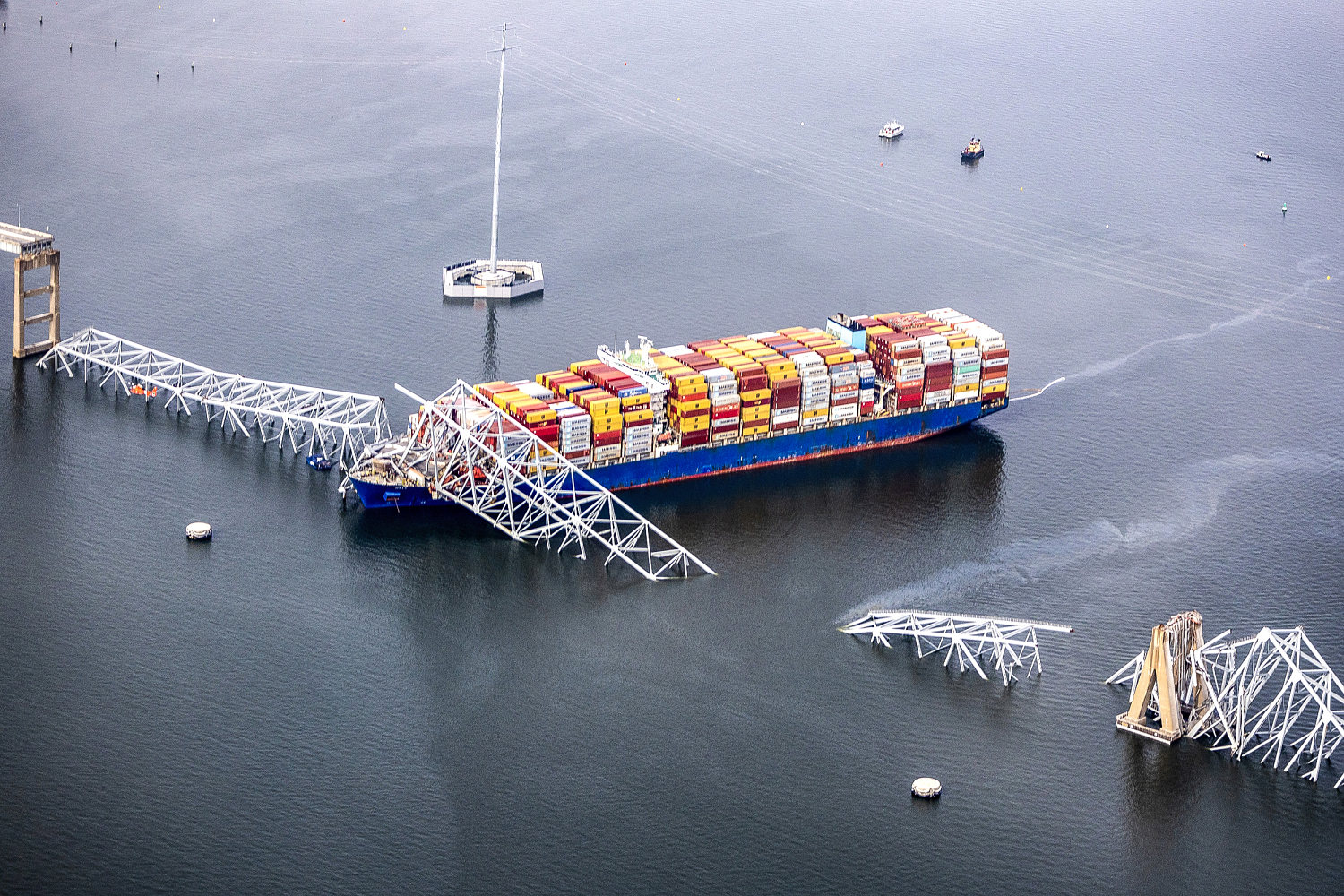Baltimore bridge crash brings scrutiny to contaminated fuel, an ‘open secret’ in

Shortly after midnight on Feb. 6, the Dali cargo ship spent five hours fueling up at the Port of Zhangzhou in China. It refueled in the Chinese city of Zhoushan three days later, and again in Busan, South Korea, on Feb. 20, according to transponder and satellite tracking data reviewed by NBC News.
Fuel is one of the areas of inquiry for investigators probing the cause of the power failure that preceded the Dali crashing into and toppling the Francis Scott Key Bridge in Baltimore this week, according to federal safety investigators.
Contaminated fuel is believed to cause scores of ships to lose power and propulsion every year, but the incidents rarely come to light, experts say. That’s because the ship malfunctions almost always occur in the open sea, where crews can deal with them without incident.
The data reviewed by NBC News provides a snapshot of the Dali’s fueling activity before it reached the East Coast. The data did not register any fuel stops on the boat’s journey through the Panama Canal, to New York, Virginia and Baltimore — though some experts who spoke to NBC News believed that it would have had to fuel in one of those places.
The Dali’s fuel stops in Asia were confirmed using data from the United Nations’ Long-Range Identification and Tracking system (LRIT), which tracks ships based on satellites and other reports. That data, restricted from release to the public, was provided by a source with access to the system who shared it on the condition that they not be identified. NBC News also confirmed the Dali’s route and fueling stops using Automatic Identification System data reported by the ship and provided by MarineTraffic, a maritime analytics company.
The LRIT and MarineTraffic data does not include details on the type of fuel the Dali received, its origins or its quality, but it does provide the first information on where the Dali picked up the fuel it may have been using as it left Baltimore, according to experts who reviewed the data on NBC News’ behalf. The fuel it received before February likely would have been gone by the time it reached Baltimore, the experts said.
To be sure, other factors could have caused the system failures ahead of the March 26 crash, and the National Transportation Safety Board has said it’s just beginning its investigation. But the incident has in general focused attention on a little-known problem that falls into a gray area where oversight is limited and the purveyors of faulty fuel rarely face accountability, legal and maritime experts say.
“It’s an open secret that fuel contamination issues plague the industry with most of the incidents going unreported or not resulting in any substantial damage to the vessel or property or life,” said James Power, a New York maritime lawyer and former merchant marine and engineering officer on American ships.
Power has represented several ship owners whose vessels were damaged by contaminated fuel. The vast majority of such incidents don’t result in catastrophic harm to property or the vessel itself, he noted.
“Those situations are rare, but are foreseeable results when an industry lacks self-regulating mechanisms to identify contaminated fuel before it is sold, put on board the vessel and consumed in the vessel’s engines,” Power said.
Fuel contamination not only puts ship crew members at risk, but also can cause pollution and damage the reputations of shipping companies, said Steve Bee, group commercial and business development director for VPS, a testing service that provides information to more than 12,000 vessels around the world and issues alerts on contaminated fuel. The Dali, he said, was not a client.
Contamination isn’t confined to any geographic region or supplier, Bee said: “It can happen anywhere, anytime.”
He said VPS hadn’t issued any recent fuel contamination alerts in China or South Korea.
A spokesman for the Danish shipping giant Maersk, which chartered the Dali, declined to comment on whether fuel may have been a factor in the accident.
“Regarding fueling, we are closely following the investigations conducted by authorities and the vessel operator as well as conducting our own investigation,” the spokesperson, Kevin Doell, said in an email.
Synergy Marine Group, which operates and manages the ship, and Grace Ocean Private, which owns it, did not immediately respond to requests for comment.
Jennifer Homendy, chair of the NTSB, said at a news conference Wednesday that investigators would take a sample of the fuel and test it for contaminants, as authorities work to determine the cause of the crash.
The U.S. Coast Guard referred questions to the group of agencies handling the response to the crash, which did not respond.
Port officials in Zhangzhou and Zhoushan…
Read More: Baltimore bridge crash brings scrutiny to contaminated fuel, an ‘open secret’ in

